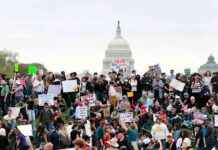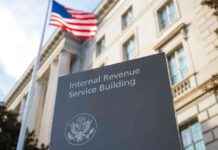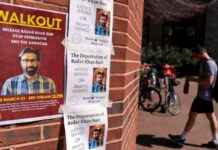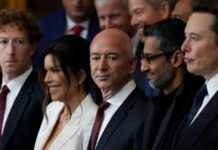Elon Musk’s Pentagon Visit Altered Amid China War Plans Speculation
Tech magnate Elon Musk’s scheduled visit to the Pentagon took an unexpected turn due to reports of potential China war plans, as confirmed by two U.S. officials speaking with ABC News. Initially set to meet with the Joint Chiefs of Staff to discuss China and other matters, Musk’s plans abruptly changed following The New York Times’ publication of his supposed briefing on China war strategies.
On the morning of the anticipated meeting, Musk made his way to the Pentagon premises. However, contrary to the original plan, Musk redirected his attention towards a meeting with Defense Secretary Pete Hegseth and his team, according to accounts from a U.S. official. The gathering with the Joint Chiefs was initially intended to be conducted at an unclassified level, with virtual attendance from Adm. Sam Paparo, head of U.S. Indo-Pacific Command.
Secretary of Defense Pete Hegseth cordially welcomed Musk to the Pentagon, engaging in discussions pertaining to Musk’s Department of Government Efficiency. Despite rumors of secret war plans involving China, both Hegseth and President Donald Trump vehemently denied such claims. Trump dismissed the idea, emphasizing Musk’s invaluable contributions to the country and his lack of involvement in confidential military strategies.
As Musk concluded his visit to the Pentagon, reporters inquired about the nature of his meeting. Musk responded with his trademark optimism, remarking that it was always a productive exchange. Walking alongside Hegseth, Musk alluded to his prior visit to the Pentagon in 2016, highlighting his ongoing commitment to collaboration and innovation.
Throughout the encounter, no explicit mention of China or classified briefings was disclosed by either party. Hegseth had previously clarified on social media that the focus was on fostering innovation, enhancing efficiencies, and optimizing production processes. Even President Trump echoed similar sentiments, assuring his followers that China was not on the agenda for discussion during Musk’s visit.
In a gesture of resolve, Musk took to social media platforms to address the alleged leaks of sensitive information, asserting that those responsible would face repercussions. With a firm stance on accountability, Musk underscored the importance of confidentiality and safeguarding national security interests.
In the aftermath of Musk’s departure, the meeting of the Joint Chiefs of Staff proceeded as planned in the iconic conference room known as “The Tank,” albeit without Paparo’s virtual presence. Lasting for approximately two hours, the discussions within the high-level military gathering unfolded against a backdrop of uncertainty and speculation surrounding Musk’s truncated visit.
As Musk bid farewell to the Pentagon, the echoes of his commitment to collaboration and progress lingered in the air. With a promise to support future endeavors and a shared vision for advancement, the alliance between Musk and key Pentagon officials symbolized a bridge between innovation and national security.
In a rapidly evolving landscape of technological advancements and global partnerships, the intersection of private enterprise and governmental agencies underscores the intricate dance of progress and security. As the world watches with bated breath, the legacy of Musk’s Pentagon visit serves as a testament to the delicate balance between innovation and safeguarding national interests.
As the dust settles on Musk’s whirlwind visit to the Pentagon, the echoes of collaboration and shared vision resonate within the hallowed halls of power and progress. Amidst the backdrop of shifting alliances and global uncertainties, the enduring impact of Musk’s foray into the heart of military strategy underscores the critical role of innovation in shaping the future of national security and technological advancement.
































